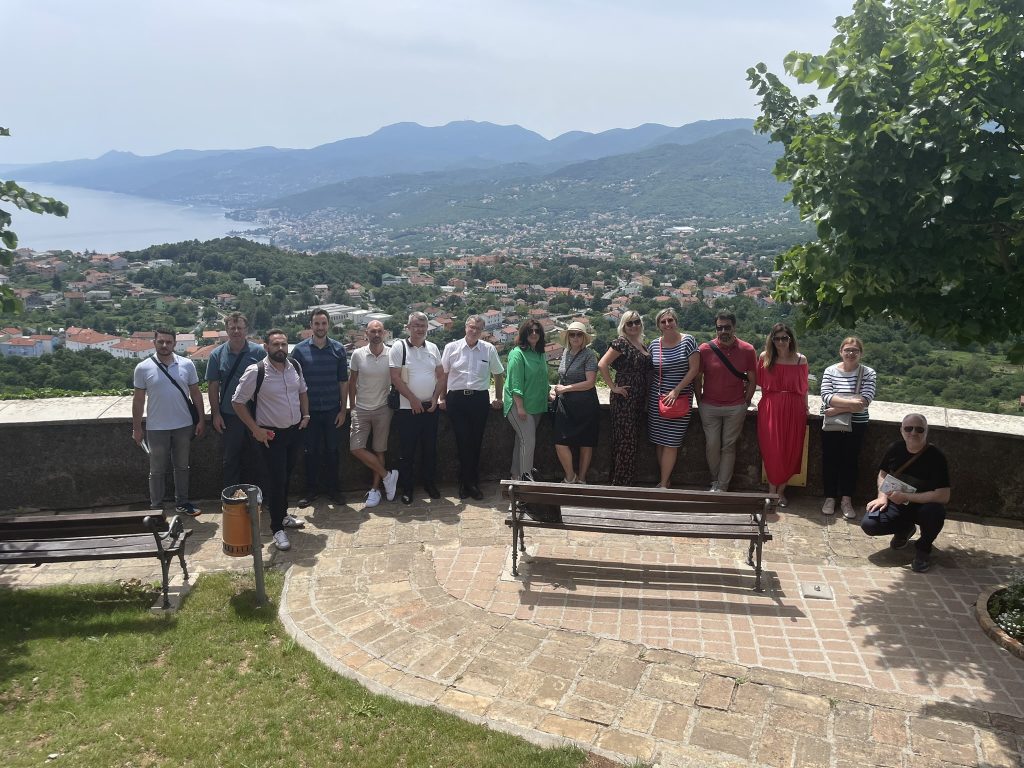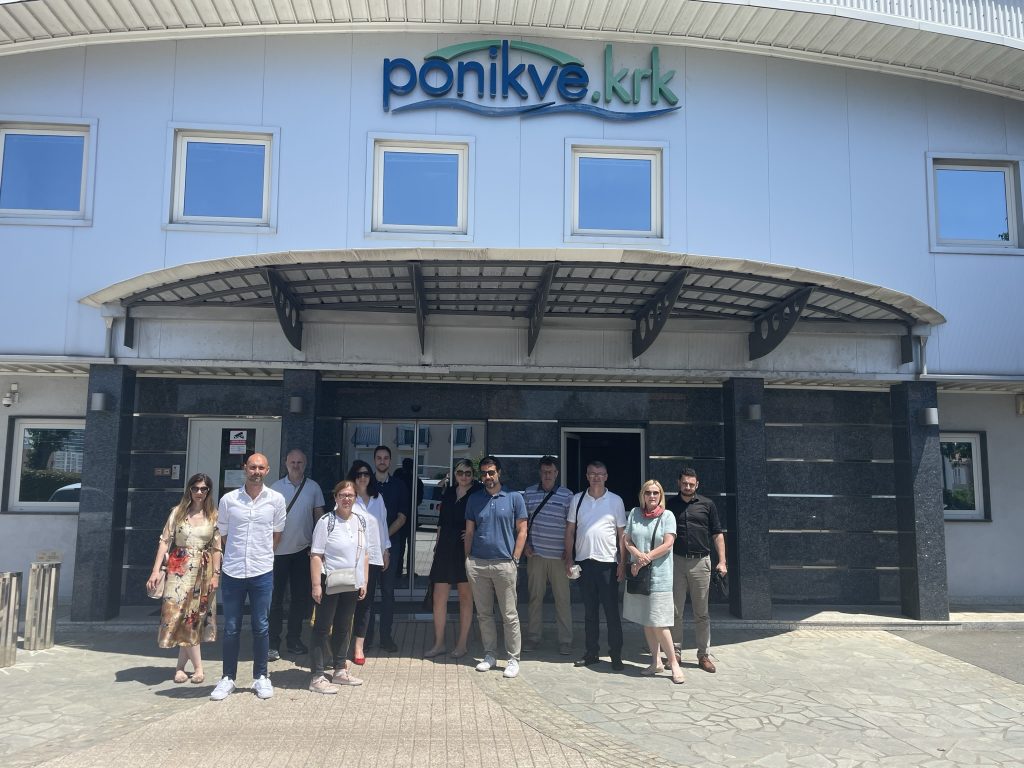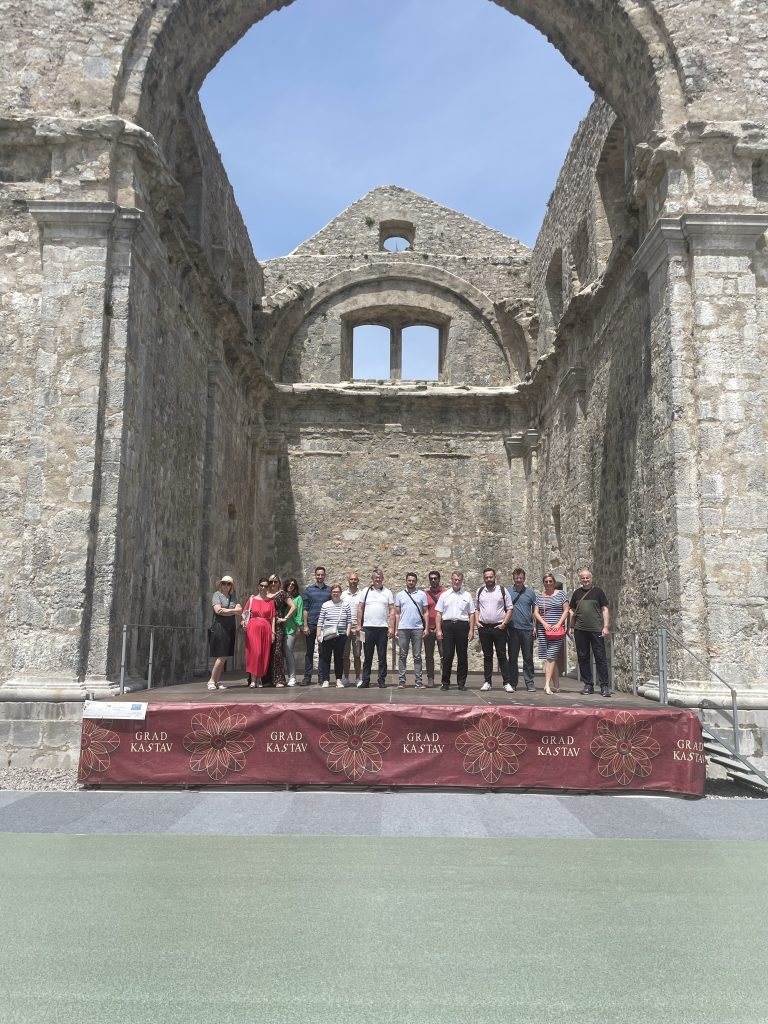
The study visit to Kvarner (the island of Krk and Rijeka) was held in the period from June 1-3 2022 with the aim of providing participants from Bosnia and Herzegovina and Serbia, more specifically representatives of local self-governments and civil society with an insight into current practices in the implementation of the energy transition in the Republic of Croatia.
During the two-day stay in Kvarner, the participants had the opportunity to learn about and see examples of good prosumer practice, i.e. of energy-independent buildings on the island of Krk (with the use of solar panels, battery systems and heat pumps), to become familiar with the application of the PPP concept in the practice of waste management on the island of Krk, and to receive information about completed and planned projects and activities, as well as the method and effects of the work of the Kvarner Energy Agency and the administration of the City of Krk.
Fourteen representatives of local self-governments and civil society from Serbia and Bosnia and Herzegovina participated in the study visit (the list of participants is in the table below), including energy managers, heads of the Office for Local Economic Development from Užice, Niš, Kragujevac, Preševo (Serbia), and Tešanj, Teslić, Gračanica (BiH), as well as a representative of the Standing Conference of Towns and Municipalities of Serbia, representatives of the non-governmental sector, media and donors.

During the visit, current and potential new projects, ways of further exchange and regional cooperation were discussed, especially with the aim of greater use and application of the so-called community energy concept, i.e. establishment of energy cooperatives and energy communities in Serbia and Bosnia and Herzegovina, using the experiences of the EU (Republic of Croatia).
This visit once again demonstrated the importance of networking, exchange of experience and knowledge, as well as the importance of examples of good practice for initiating and further steps in the implementation of the energy transition in the countries of the Western Balkans. During the visit, the role of donor organizations and the support of foundations such as HBS for the implementation of specific projects, especially pilot projects, which, in addition to solving energy challenges, significantly contribute to raising awareness and improving the knowledge of local decision-makers, as well as future users and citizens, were particularly highlighted.

